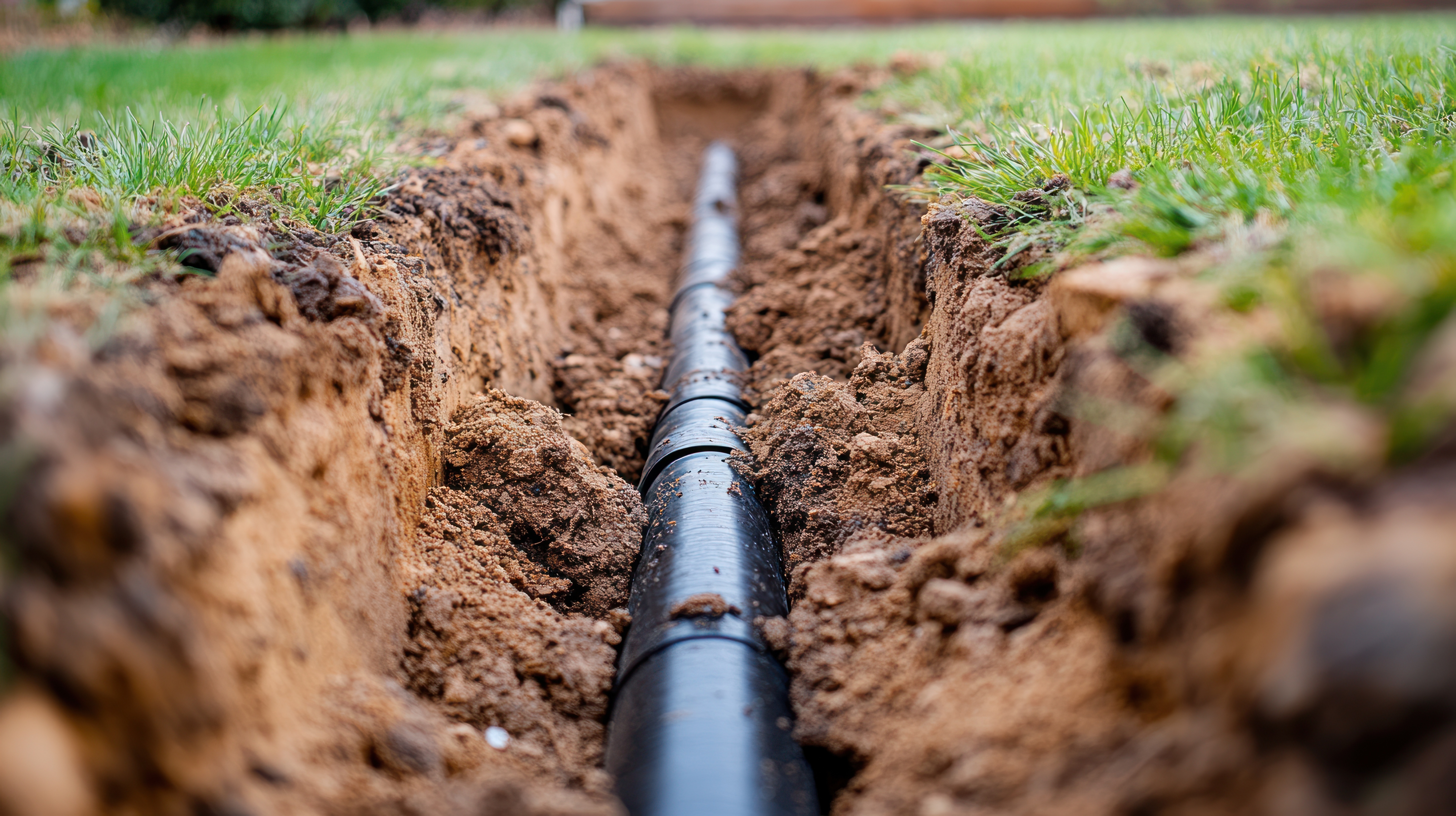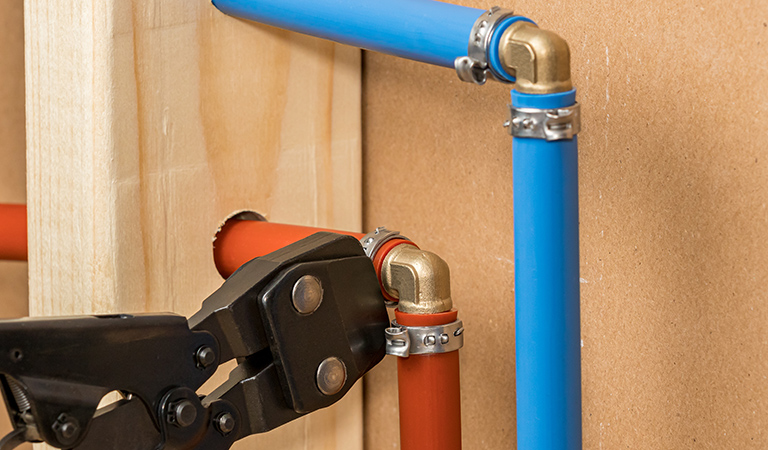
How much does hydro jetting cost? Learn hydro jet drain cleaning prices based on factors like the extent of the clog, accessibility, and more.
Replacing a water main line in Denver costs $2,338 on average, with most homeowners spending between $1,079 and $3,597. Freeze cycles, pipe depth, and pipe material all contribute to the total cost of the project.


Costs are in line with the cost of living in Denver, which is high to very high.
Work is very expensive in the winter and takes much longer.
Most water mains are buried due to the winter climate.
Main water line replacement costs in Denver are higher than in other cities due to the need for a deep burial, expensive materials, and costly labor. Denver residents will see an average cost of $2,338, but it can range anywhere from $1,079 to $3,597, depending on materials and water main style. However, permitting should be simple and considering the population, finding a pro shouldn’t take more than a few minutes.
Denver has the benefit of many experienced pros who can tackle this project, but work in the city doesn’t come cheap due to the cost of living and material access. The following factors influence the cost of replacing a water main in the Colorado capital.
Denver water lines need to use more robust and costly materials than cities in more moderate climates. Ductile iron is most likely the best choice for homeowners, but it also costs much more than thermoplastics like PVC and PEX. These synthetic products are priced well and are easy to work with, but they pose significant disadvantages in winter climates (freezing and cracking). The average costs for common materials are below and include an average amount of labor.
| Materials | Average Cost | Pros | Cons |
|---|---|---|---|
| PVC | $900–$2,600 | Inexpensive | Can crack in the cold |
| Polyethylene/PEX | $1,100–$3,200 | Rust resistant | Short lifespan |
| Cast iron | $1,800–$3,500 | Extremely durable | Can affect taste |
| Ductile iron | $1,900–$3,500 | Better durability than cast iron | Susceptible to corrosion |
| Copper | $2,400–$5,000 | Long lifespan | Expensive |
| FRP | $1,300–$3,000 | Strong | Not very flexible |
Replacing your water main is usually an emergency repair, and if it isn’t, you still need to address it immediately. We expect most homeowners may need to perform this replacement once, or not at all, throughout the lifetime of their home.
Due to their buried depth, maintenance on Denver water mains is practically non-existent. What makes a big difference in how long your main will last is making sure it was installed correctly and that you take good care of the plumbing inside your home. Any significant clogging or other damage can easily affect the main line.
This isn’t a DIY job, so you shouldn’t attempt any of the pre-project work yourself. Depending on the time of year, a pro would need to bring a serious excavator to dig up your trenched line. Depending on its condition, they may need to dig deeper in order to remove it or assess the damage. Prep work involves shutting off the water to your home and the main water line connection before swapping out the line.
If your line is buried leading to your home, you have a main installed in a trench. These are considerably easier to replace than trenchless systems, which means you should have a much easier time finding an available pro, which is a huge plus, as water main replacements almost always need to be immediately addressed.
Denver is a city with serious freezing pipe concerns, so while trenchless options are available, it isn’t a good idea to have your main water source exposed to prolonged winter temperatures. For this reason, trenchless systems tend to be more expensive (and less practical) in Denver.
Water mains in Denver need to be buried deep beneath the surface to be under the frost-penetrating layer. This results in lines having an average minimum depth of 36 inches, but they really should be 48 inches (4 feet) or more. The deeper the line, the more expensive it will be to dig up and replace it. During some winter months, this would be extremely difficult and time-consuming due to the frozen ground.
Your pro should be applying for and pulling permits in Denver. Permits are required, but the city has a “Quick Permit” application page where you can request a permit without your plan needing to be reviewed. This speeds up the project considerably and helps keep costs low. Water main replacements aren’t specifically mentioned, but water service is—talk to a pro to confirm and expect to pay around $150 to $500 for the permit.
Expect to pay approximately $200 for cleanup costs if they aren’t included in the project fee. Old pipe material like lead may need to be disposed of in a specific way, costing around $100 more. Unfortunately, you can’t reuse water mains after they’ve degraded past a certain point in their usable life, and will need to be replaced.
The cost of a top Denver plumber depends on the work being performed. For trenched installations, expect to pay pro costs between $40 and $100 per hour and between $50 and $150 per hour for trenchless. Due to the low winter temps, it’s more common in Denver for lines to be buried rather than remain exposed (and susceptible to freeze damage).
If you have a water main that needs replacing, don’t expect it to increase your home’s value. Water mains are an integral part of the home, and your home won’t increase in value if you have one installed and in good condition, but your home will surely lose value if you don’t. If you have any suspicions about your water main, regardless of whether you’re planning on selling or refinancing, you need to have a pro address it immediately.
Home is the most important place on earth, which is why Angi has helped more than 150 million homeowners transform their houses into homes they adore. To help homeowners with their next project, Angi provides readers with the most accurate cost data and upholds strict editorial standards. We survey real Angi customers about their project costs to develop the pricing data you see, so you can make the best decisions for you and your home. We pair this data with research from reputable sources, including the U.S. Bureau of Labor Statistics, academic journals, market studies, and interviews with industry experts—all to ensure our prices reflect real-world projects.
Want to help us improve our cost data? Send us a recent project quote to [email protected]. Quotes and personal information will not be shared publicly.
From average costs to expert advice, get all the answers you need to get your job done.

How much does hydro jetting cost? Learn hydro jet drain cleaning prices based on factors like the extent of the clog, accessibility, and more.

Plumbing inspection costs depend on the issue you’re looking into and the size of your home. Learn what you can expect to pay.

The average cost to replace a bathroom faucet typically ranges from $170 to $360. Faucet installation costs often vary based on the selected fixture hardware.

Wall-hung toilets offer a modern style and are easy to clean, but they’re also expensive and difficult to repair. Let’s examine the pros and cons of wall-hung toilets.

Discover the average plumbing stack replacement cost, key price factors, and expert tips to help you budget for your home’s plumbing upgrade.

There are a few plumbing terms that everyone needs to know. Using this informative guide, you’ll learn plumbing terms like flapper and shut-off valve to help you tackle both emergencies and everyday annoyances.